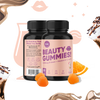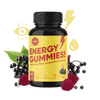Elderberry plant (Sambucus nigra) is a good source of protein, free and conjugated forms of amino acids, unsaturated fatty acids, fibre fractions, vitamins, antioxidants and minerals. Analysis of elderberry showed that it contains high biological activity components, primarily polyphenols, mostly anthocyanins, flavonols, phenolic acids and proanthocyanidins, as well as terpenes and lectins. In folk medicine, elderberry has been used in the treatment of many diseases and ailments. Elderberry has medicinal properties associated with the presence of polyphenols, which are compounds with potential antioxidant properties. They can greatly affect the course of disease processes by counteracting oxidative stress, exerting beneficial effects on blood pressure, glycaemia reduction, immune system stimulation, antitumour potential, increase in the activity of antioxidant enzymes in the blood plasma, including also glutathione, and the reduction of uric acid levels.
www.sciencedirect.com/science/article/pii/S1756464614002400.
In 2006, the Cochrane database did a review on Echinacea in all of its forms, root and fresh-pressed juice, and assessed the trials for proper methodology and outcomes. Of the 19 studies conducted that compared an Echinacea preparation with placebo as treatment for acute infections, a significant effect was reported in 9 studies, a trend in 1, and no difference in 6. A fair number of in vitro studies have been conducted on various Echinacea extracts which generally show positive results, even more so than clinical studies on humans. Most recently, an in vitro study explored Echinacea’s antiviral effects and found that in hemagglutination assays, the Echinacea extract inhibited the receptor binding activity of the virus (H1N1 and Avian HPAIV), suggesting that this extract interferes with the viral entry into cells which ultimately limits virus replication and dissemination
www.gaiaherbs.com.










Nunc Customer Testimonials